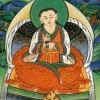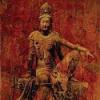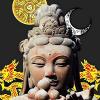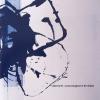Search the Community
Showing results for 'Dream'.
Found 7,591 results
-

Being Poor and Happy is Sexy, My Epiphany
zerostao replied to becomethepath's topic in The Rabbit Hole
@kaazuo "– alone" so sad this is what being rich has gained you,,,,,, "That explains it. You are not meant to be rich. And that is your karma. You should have no trouble finding your dream in life." if one is a Taoist, see my above post, about the revision ideal and if anyone happens to be in america, then it is a common theme that one can go from rags to riches or from riches to rags with a quickness "I feel I am meant to be rich and to have everything my heart desires' i dont mean to go lacan or the rolling stones on ya, but , ya aint never gone get your desire you, if you try, can get what you need desire is either a bob dylan album or a u2 song i do always find great entertainment in your postings kaaazuo when if you do tumble one day and find yourself amongst the poor, if you need a guide just hollar here is a preview to how the poor travel -

Everyone post some favorite quotes!
Esteam'd Punk replied to GrandTrinity's topic in General Discussion
"If you want to live, then have a dream." -Myself -

Being Poor and Happy is Sexy, My Epiphany
kaaazuo replied to becomethepath's topic in The Rabbit Hole
That explains it. You are not meant to be rich. And that is your karma. You should have no trouble finding your dream in life. I feel I am meant to be rich and to have everything my heart desires. The rich live in a reality very much different than that the poor faces even though all live on the same planet. Take travel for example. The poor wait for the bus at street corners where thugs loiter. The poor rides in the bus or train with other poor people and run the risk of being in the midst of a punch-up or food fight. I took a ride into the city on a train once. I didn’t sit even though there were unoccupied seats, and I didn’t look at anyone for fear of looking at anyone the wrong way. Back home, I felt compelled to take a shower. I stripped off my clothes and dumped them in the washing machine, and sent my shoes and jacket to the cleaners. The rich don’t wait. Life is precious and the sole of expensive shoes rarely touch public pavements. You step off the driveway, sink into soft leather upholstery and get driven to your destination – alone, as you work on the onboard computer writing posts to tao bums; or with other rich people you like, but never with the poor. -
Hi Dawg Well, you can be my guru anyday. I've adopted you. Consider it an honour! I'm so impressed with what you have written that I'm sure you have found the key. The key is the conscious mind. After reflecting on what you have written for a few days, I can see how this all fits together. It all really makes sense to me. I agree that the conscious mind can talk to the subconscious mind, and tell it what to do. I verify this each time I go to bed and tell my body to wake up at a certain time and it does. I verify this each time I meditate for 1 hour and something lets me know the bell is about to ring about 20 seconds before it does. I am testing this by telling my subconscious to heal myself of this cold, and after 1 day, it is almost gone. If this all works (as I have always suspected) I should be able to tell my subconscious that it is ok to be enlightened and it should work. The purpose of most practices is to remain in the conscious mind, to strengthen it and take back control from the subconscious mind (or, I guess you would call it the delusion). That's why most Buddhist/Realized teachers say that you must be mindful 24 hours a day. You have to learn to live and control the conscious mind, turn the balance from the subconscious to the conscious. That is why, people who awaken end up calling the enlightened state "just the normal mind". These are some of my conclusions at this point: - Controlling the breath only subdues the conscious mind, bringing the subconscious mind into focus. You will never awaken by subduing the conscious mind, although bringing the subconscious into focus is part of the learning process. The conscous mind has to be active and in control, which is why Zen and Buddhists say to meditate with eyes partially open, to keep the conscious mind in play. - Consciousness can stand on it's own and by itself. It does not always need an object to focus on. Whenever I squash a bug, I think to myself "I've just set a little blob of consciousness free". - Whatever you believe (from your subconscious mind) is at odds with whatever the conscious mind desires. If the conscious mind wants to levitate or walk through walls, the subconscious mind tells it, from past experience, that this is impossible. However, you should be able to tell your subconscious mind that it is possible, and if you repeat it often enough and with enough conviction, your subconscious mind should eventually believe you and then manifest the event. - Both the conscious and subconscious mind use the 'little voice in your head' to communicate. It talks to you and you talk to it, "you" being the conscious mind. Actually, I don't even know why I'm kind of repeating or elaborating on what you've already said. It is so wonderful to have someone say that I have experienced the 'enlightened mind'. That really means allot to me. Next, to make it permanent. My life's dream.. A hundred and eight thank yous to you, Dawg! TI
- 152 replies
-
- awakening
- enlightenment
- (and 7 more)
-

Evaluate my financial plan/ future
Thunder_Gooch replied to becomethepath's topic in The Rabbit Hole
I know man, but I can dream can't I? I imagine that somewhere out there is woman who shares my dreams, passions, interests, etc., someone I would really connect with on a soul level, who didn't have any sort of mental problems or personality disorder, who was good in the bed and had a high libido, who didn't want children ever, who worked together with me financially instead of expecting me to support her, who pursued my dreams with me as they were her dreams too, someone that worked together as a team towards a common goal. That's my idea of love. -
Before I taking up meditation, I did some lucid dreaming stuff. I had a OBE via lucid dream onnce. It was fun until a monster showed up. :-( Right now, I fucus on opening my meridian channels and erase any pain spot on my body. I think we're living in a "simulated" reality already. My goal is to "astral travel" in this "real" world. The astral travel is fun too from what I've heard. But I haven't found any reliable way yet. If you figure it out, let me know.
-

Black/Grey Orbs
DragonsNectar69k replied to DragonsNectar69k's topic in Esoteric and Occult Discussion
Hey Seth, is that the saint of death in your avatar? I have seen her as well in my dream scapes. But she usually protrudes or seeks to inflict me some how. Tis peculiar. -

Black/Grey Orbs
DragonsNectar69k replied to DragonsNectar69k's topic in Esoteric and Occult Discussion
Interesting interpretation. I'm not to sure what to say. These cops have become a common occurrence. If there are spiritual forces in the astral or dream scape, I have experienced plenty of different kinds in the last few years, even governmental ones. All who were some how seeking to hold their dominion in that moment. Whether this was a good or bad entity in my eyes. They all failed to understand that I all wanted to do was.. UNDERSTAND. The only being who understood this was HUGE and lifted me up with his hand in the sky. He was mighty, but very gentle. In His presence I felt sustained and understood. I did not feel imposed upon or restricted. I felt as a child would in the presence of loving parents, free and unconditionally loved. Every other being has been on pair with my own sense of being, all seeking to be liberated some how. -
Hello Tibetan Ice, You said… As this experience occurred a few more times, in various circumstances, I noticed that they all had the same characteristics: 1) Monkey mind was gone (no voice broadcasting anything). There was a distinctive inner silence… (this is what is meant by the mind being “empty”) 2) There was great bliss, love, joy, beyond belief… (nirvana) 3) Whatever I was looking at was crystal clear, brighter and luminous (leaves on trees, the sky, grass, etc). 4) There was an overwhelming feeling that I "was" everything. It was all me. The sense of "me" had become everything. I was the soap in the shower, the tub. I was the trees, the sky, the park bench, the other people. 5) You can still 'think' but it is a direct knowing, like the thought (which are few and far in between, I don't know if I would even call them thoughts) just appears in an instant 'knowing'. And, the knowing is very clear, precise.. almost luminous. Also, the thought comes from a location above the head, instead of the usual locations with relation to the head space… These experiences have been so wonderful and mind-shattering that I wish I could just stay in them forever. ( I also wish I could make others experience the same state). The states have never lasted that long... Have I described the state that you are permanently in now? Did you notice the feeling that "you were everything"? Do all objects seem brighter than before? Is that what you are calling awakening? …………………………………………….. Yes, this is what I experience permanently now… yes, this is what I am calling awakening… what you describe is like the enlightened mind, the permanent state of consciousness that you are in when you “awaken”… what you have done is to temporarily escape “delusion”, and see man’s natural state that is hidden behind the delusion… then delusion closes in around you again, and your vision of enlightenment fades away and is hidden again… the only way to reach that state (of enlightenment) permanently, is to destroy delusion permanently… Although It is the subconscious mind (6th chakra which absolutely and totally controls the lower five chakras) that becomes enlightened when delusion is destroyed… it is only the “independent” conscious mind (7th chakra) has the ability to destroy delusion… this is because the conscious mind has the power “to think outside the box” of its conditioning (free will and logic)… The Buddhist meditation that I did, systematically neutralizes delusion’s control of the conscious mind… starting with learning to stop the voice temporarily (Samadhi/concentration)… then as the concentration gets deeper and deeper, getting rid of anger and greed, reaching equanimity, and then moves on to body investigation meditation… the conscious mind becomes stronger and stronger… the goal is the middle path, where there is no “duality” (delusion)… everything “just is”, nothing is good or bad except intension… in this way, the conscious mind weakens delusion’s control of it, bit by bit… until (one day when you least expect it, and are relaxed in a “safe place”, with your mind free of thoughts), delusion (mundane reality) collapses and is swept away amid loud noises (louder, higher, and deeper than you have ever heard) and blinding flashes of lights… then the bliss hits you, and it is as if you have been asleep, and have just awakened from a dream (the delusion that seemed so so real)… you are now back home, back in the “real world” that you have had glimpses of before… I think I'm a bit afraid that if this state were to persist, I would no longer know how to perform my highly technical skilled job at work or even be able to drive a car... I imagine that it takes some getting used to! You might experience some minor disorientation at first (like getting used to the bliss)… like you would experience if you go from bright light to darkness, or darkness to bright light… and your eyes need some time to adjust… but the awakening makes it easier (almost effortless) to do all the things you did before… and your ability to “know” by intuition, would greatly enhance your ability to perform at your “highly technical skilled job”… you would be able to intuit solutions to problems… you would become a “genius” at doing your job… and it would not endanger you while you were driving your car, your ability to concentrate and intuit would make you safer… your enlightened subconscious mind would never throw you a curve and put you in danger, it would always be protecting you from danger… you would be safer than you are now. Dawg
- 152 replies
-
- 1
-

-
- awakening
- enlightenment
- (and 7 more)
-
Yes,...sort of. Real Compassion is surely beyond belief,...however real compassion, as Buddhism instructs, also has empathy for the suffering of sentient beings. If you could see suffering, and the cause of suffering, even though you understand it to be just a dream, would you as Lao Tzu said, "Who can enjoy enlightenment and remain indifferent to suffering in the world? This is not keeping with the Way?" In a way however, we are getting tripped up on the sequence here. First we must understand the nature of compassion,...before we can really discuss in any depth, how it responds to suffering,...in other words,...before one can honestly argue if compassion is tolerant or intolerant of that which steps between a sentient being and their direct experience,...we should understand compassion itself,...of which, as stated in post #2,...I will be discussing from a Buddhist point of view,...not society's point of view as espoused by Marblehead. What is the good deed that Marblehead recommended? Do not Christian and Muslin evangelists perform good deeds everyday? Flolfolil's comment is too sophomoric to respond to,...yet if you watch, one that the overwhelming majority share. It's sort of, if you're in the box, and the box is sustained by beliefs, then anything outside the box must also be a belief.
-
Tantra was primarily the way or means to understand the mysteries of life and universe, somewhat akin to the old Pythagorean concept of ‘philosophy’ which was ‘contemplation, study, and knowledge of nature’. At the earlier stages of history, Tantra arose as the sum total of man’s knowledge of the objective world around him. It was a way of life that sought the significance of knowledge, not in the realization of some illusory absolute, but in day-to-day activities of people. Essentially, Tantra is synonymous with science. Tantra is synonymous with religion, and religion is synonymous with science. Science is defined as a branch of knowledge or study dealing with a body of facts or truths; a systematic knowledge of the physical or material world gained through observation and experimentation. Science is exactly Tantra in its original form. The scientific treatises composed in India are generally known as Tantras, or otherwise as ‘the scripture by which knowledge is spread.’ That’s all religion and spirituality is about. The Tantric tradition which was evolving since time immemorial as the philosophy of the masses, had a great metamorphosis when elements of the dominant class were imposed on it. It was distorted and its principles were remodeled so that they would conform to the philosophy of illusion (i.e. Advaita Vedanta, non-dualism). The scientific and materialistic traditions were relegated to background, and all references to technical and manual labor, observation and experiment were effaced from the texts. This contempt for worldly knowledge was possible only because one section of the community lived on the surplus produced by another and withdrew itself from the responsibility of labor and hence from the obligation of acknowledging the reality of the material world. Earlier portions of the RigVeda knew neither caste-distinction nor contempt for empirical knowledge and its functioning in different spheres of life. Brahmanical social ideals were superimposed on the original Tantra to such an extent that the real contents are completely obscured. There have been countless attempts to convert Tantra into a kind of Vedanta. Also, while Tantra attaches supreme importance to Saktism, the popular belief that Tantra is the same as Saktism is wrong, although its heavily intertwined. Originally followers of the Tantric tradition were denounced for their anti-Vedic attitudes. The fact is that religious systems like Pancaratra, Pasupata, Sakta, Ganapatya, etc. were exclusively Tantric, originally having nothing to do with the Vedas. Actually original Tantra was atheistic. The incorporation of the Vedas brought the gods and goddesses. These forms of religion were extremely popular among the masses, and so therefore the followers of the Vedic tradition had to give them Vedic sanction. Slowly but steadily Vedic elements were infused into these systems. The grafted elements were given publicity and patronized by the ruling class and the elite, while the true tantric elements were blackened and severely condemned. The Vedantic orientation of later Tantric cosmogony gave rise to numerous anomalies and contradictions by which the medieval Tantric texts and commentaries are pronouncedly characterized. The purely illusory position of the world, as suggested by the absolute non-dualistic form of Vedanta on the basis of the queer logic that the cause alone is real and that its apparent transformation in the form of effect is only illusion, created much confusion among the Tantrics who believed in an organic psycho-physical process of creation in which qualities were common to the cause and its effects were stressed. The belief of the idealists, that the material world is an illusion, are refuted…the knowledge of external objects is true because there is no such knowledge which can reject it, just as the experience of the waking state, which rejects that of the dream, is perfectly true. If the absolute is, as is asserted to be, absolutely pure, the world itself should be perfectly pure. An impure world cannot be viewed as the outcome of the pure Brahman. Tantrism was basically not a moksa-sastra or science of the liberation of the soul, but was in fact an attitude towards life, a distinct outlook or viewpoint. Its intimate association with the practical aspects of life is proved by the emphasis it attached to the arts of agriculture, metallurgy, manual and technical labor, chemical sciences, physiology, embryology and medicine. Also, the sociological viewpoints expressed in the Tantras were in virtual opposition to those upheld by the Smarta-Puranic tradition. In the Vaisesika-sutras it is stated that every element as cause can produce effect, and this production of effect is conditional. This is opposed to the non-dualist view that there is only cause, and that that cause cannot be conditioned. Under the different historical conditions although this materialistic outlook was suppressed, it could not be totally excluded from the framework of the idealistic philosophical systems. Tantra is basically characterized by the doctrine of elements, and also the idea that there is no soul apart from the body. Tantra’s goal was only liberation within this lifetime and seeking physical immortality within this lifetime, that’s it. Anything else is Vedas-adulterated Tantra or western Neo-Tantra. Real Tantra is Dualist. Real Tantra is Science.
-
I agree. As I recently mentioned somewhere,...Milarepa suggested that (talking of Theravada, Mahayana, and Vajrayana) Buddhahood is not attainable if any of the three is lacking. I disagree that "cutting down ego" as you said can be accomplished with humor. People do not want to see that what they considered meaningful, is actually meaningless,...and humor is not going to achieve that. For example,...Why do Christians go to Church? Remember, it's a joke. Christians go to Church because they have faith. It's hilarious,....first time I heard I cheeks hurt from the laughter. A very good example of how "ego is cut down" can be found in the story of Tilopa's Shoe (the enlightenment of Naropa) This is part of my copyrighted version: The biography of Naropa is both an amusing and illuminating description of the tests devised by a master of the Short Path to train and direct an initiate. Naropa, born around 1010, c.e., was considered a man of refinement, a learned doctor and deeply convinced of his superiority as a member of the Brahmin caste. Having been greatly offended by a rajah to whom he was chaplain, he resolved to kill the prince by an occult process. For this purpose, he shut himself up in an isolated house and began a magic rite to bring about death; the dragpoi dubhab. As he was performing the rite, a Dakini faery appeared at a corner of the magic diagram and asked Naropa if he deemed himself capable of sending the spirit of the rajah towards a happy place in another world, or of bring it back into the body which it had left and resuscitating it. The magician could only confess that his science did not extend so far. Then the faery assumed a stern presence and reproached him for his nefarious undertaking. She told him that no one had the right to destroy who could not build up again the being destroyed or establish it in a better condition. The consequence of his criminal thought, she added, would be his own rebirth in one of the purgatories. Terror-stricken, Naropa inquired how he could escape that terrible fate. The Dakini advised him to seek the Sage named Tilopa and beg from him initiation into the mystic doctrine of the Short Path which frees a man from the consequences of his actions, whatever they may be, by the revelation of their true nature, and ensures enlightenment in one single life. If he succeeded in grasping the meaning of that teaching and realize it, he would not be reborn again and consequently would escape a life of torment in the purgatories. Naropa stopped the performance of the rite and hastened towards Bengal where Tilopa lived. However, before Naropa would meet the Sage and receive the Ultimate Teaching, that is, Tilopa's Mahamudra, through which Enlightenment could be realized in one lifetime, he would first undergo twelve astonishments, followed by twelve ordeals. The Twelve Astonishments were challenges to Naropa's conditioning, that is, his ego and beliefs; whereas the Twelve Ordeals, or Hardships, were intended to encourage complete surrender. The first meeting of Naropa with Tilopa occurred in the courtyard of a Buddhist monastery. The cynic Sage, nearly naked, was seated on the ground eating fish. As the meal went on, he put down the fish's backbones beside him. However, in order not to defile his cast purity, Naropa was on the point of passing by at some little distance from the eater, when a monk started to reproach Tilopa for parading his lack of compassion for the animals, that is, killing and eating the fish, in the very premises of a Buddhist Monastery; and ordered him to leave at once. Tilopa did not even condescend to answer. He muttered some words, snapped his fingers and the fish bones were again covered with flesh. The fishes then moved as if living and swam away through the air as if it was water. No vestige remained of the cruel meal on the ground. Naropa was dazed, but suddenly thought that this strange wonder worker, no doubt, was the very Tilopa whom he was seeking. He hurriedly inquired about him, and the information given by the monks agreed with his own intuition. He ran after the Sage, but Tilopa was nowhere to be found. Then in his eagerness to learn the doctrine that could save him from the purgatories, Naropa wanders from town to town with the only result being that each time he reaches a place where Tilopa is said to be staying, the latter has, invariably just left it a little before his arrival. In the coming months, as if by chance on his way, Naropa would meet singular beings who were phantoms created by Tilopa. Once, knocking at the door of a house to beg food, a man comes out who offers him wine. To offer wine or spirit to a high caste Brahmin is an insult, so Naropa feels deeply offended and indignantly refuses the impure beverage. The house and its master vanish immediately. The proud Brahmin is left alone on the solitary road, while a mocking voice laughs that man was I, Tilopa. Again, the traveler sees a brutal husband who drags his wife buy her hair, and when he interferes, the cruel fellow tells him, you had better help me, I want to kill her. At least pass your way and let me do it. Naropa can hear no more. He knocks the man down on the ground, sets free the woman, and, lo!, once more the pantasmagoria disappears while the same voice repeats scornfully, I was there, I, Tilopa. The adventures continue in the same vein. Proficient magician though he may be, Naropa has never even conceived the idea of such display of supernormal powers. He stands on the brink of madness, the beliefs he clung to for his identity shaken to their core, but his fortitude to become Tilopa's disciple grew still stronger. He roamed at random across the country, calling Tilopa aloud and, knowing by experience that the Sage is capable of assuming any form, he bows down at the feet of any passer-by and even before any animal he happens to see on the road. One evening, after a long walk, he reaches a cemetary. A fire is smouldering in a corner; at times, a dark, reddish flame leaps from it showing shriveled- up, carbonized remains. The glimmer allows Naropa to vaguely discern a man laying beside the fire. He looks at him, and a mocking laugh answers his inspection. He falls prostrate on the ground at Tilopa's feet. This time the Sage does not disappear. The obscurations which inhibited Naropa from recognizing the Sage had waned. During the next several years, Naropa followed Tilopa without being treated as of any import, athough the Sage engages him in twelve ordeals, as mentioned above. Each Ordeal or Hardship, according to later Mahasiddhas of the lineage, contained one of twelve instructions of the Fourth Empowerment. As the first three empowerments encouraged the blossoming of the sapiential mind, the Fourth liberated the sapiential mind. However, only a few of the ordeals will be given here to grasp the principle of Naropa's release from his belief barriers and surrender to the Sage, whereby he fully understood the acquenscence of who he thought he was, and realized who he actually was. One of Naropa's first hardships arose following a begging round. According to the custom of Indian ascetics can beg for food, or alms, once a day. Coming back to his master, he offered him the rice and curry which he had received as alms. The rule is that a disciple eats only after his guru is satisfied, but far from leaving something for his follower, Tilopa ate up the whole contents of the bowl, and even declared that the food was so much to his taste that he could have eaten another bowl full with pleasure. Without waiting for a more direct command, Naropa took the bowl and started again for the house where generous householders bestowed such tasty alms, even though he knew he could not beg again. When he arrived, he found the door closed. However, burning with zeal, the devoted disciple did not let himself be stopped for so little. He forced the door open, discovered some rice and various stews keeping warm on the stove in the kitchen and helped himself to more of what Tilopa had so much enjoyed. The masters of the house came back as he was plunging a spoon in their pots and gave him a harsh thrashing. Bruised from head to feet, Naropa returned to the Sage, who showed no compassion whatever for his suffering. What adventure has befallen you on my account, he said with a cynical calm. Do you not regret having become my disciple? With all the strength that his pitiful condition left at his disposal, Naropa protested that far from regretting having followed such a Sage, he deemed the privilege of being his disciple could never be paid for too dearly, even if one was to purchase it at the cost of one's life. Another ordeal took place while Sage and disciple lived in a hut near a forest. Once, returning from the village with Tilopa's meal, Naropa saw that during his absence, the latter had fabricated a number of long bamboo needles, and with covered with molten butter, hardened them in a fire. Inquisitively he inquired about the use Tilopa meant to make of these implements. The Sage responded with a queer smile. Could you, he asked, bear some pain if it pleased me? Naropa answered that he belonged entirely to him and that he would do whatever he liked with him. Well, replied Tilopa, stretch out your hand. And when Naropa had obeyed, he thrust one of the needles under each of the nails of one hand, did the same to the other, and finished with the toes. Then he pushed the tortured Naropa into the hut, commanded him to wait there till he returned, closed the door, and went away. Several days elapsed before he came back. He found Naropa seated on the ground, the bamboo needles still in his flesh. What did you think while alone?, inquired Tilopa. Have you not come to 'believe' that I am a cruel master and that you had better leave me? I have been thinking of the dreadful life of torments which will be mine in the purgatories if I do not succeed, by your grace, in becoming enlightened in the mystic doctrine, and so escaping a new rebirth and having to begin all over, answered Naropa. As the years went by, Naropa drank fowl water, a defiling thing according to religious law; crossed a blazing fire, nearly drowned in icy water, and performed other fantastic feats which often put his life in jeopardy. Once, Sage and disciple were strolling in the streets when they happened to meet a wedding procession accompanying a bride to her husband's house. I desire that woman, said Tilopa to Naropa. Go bring her to me. He had scarcely finished speaking before Naropa joined the cortege. Seeing that he was a Brahmin, the men of the wedding party allowed him to approach the bride, thinking that he meant to bless her. But when they saw that he took her in his arms and intended to carry her away, they seized on everything they could find and belabored poor Naropa so soundly that he fainted and was left for dead. Tilopa had not waited for the end of the performance to pass quietly on his way. When Naropa came to his senses again and had painfully dragged himself along until he overtook his whimsical guru, the latter, as welcome, asked him once more the usual question, Do you not regret?. And as usual, Naropa protested that a thousand deaths seemed to him but a trifle to purchase the privilege of being his disciple. By some accounts, Naropa's last ordeal was said to have occurred at the end of a day walking in a remote mountainous region. Stopping at a cliff, Tilopa asked, what if it would please me for you to jump off this cliff? Before the final word was finished, Naropa leaps off the cliff, breaking nearly every bone in his body. Tilopa made his way down the steep, rocky cliff and asked Naropa who was clearly in agony, How are you?. Naropa answered that the pain was unbearable. Then, in a calm voice, Tilopa commanded him to heal himself. Instantaneously Naropa healed himself, and his broken body was fully restored. That evening, while seated at a fire, quite unexpectedly Tilopa took off one of his shoes and soundly slapped Naropa on the head with it. In that instant Naropa saw the inverse flow of forward moving waves of Light, and would not again transgress into the sleep of samsara, the always changing and impermanent dream of Maya. The full meaning of the Short Path was then told to Naropa through Tilopa's twenty-eight verse Mahamudra, or Ultimate Teaching. The story of Tilopa's Shoe is considered a historic occurrence. Several variations of the story exist, some handed down by oral tradition, others written in the biographies of famous lamas. Yet, unlike other philosophies, the historical legitimacy of Kagyu makes no difference, for the essence of the Short Path, the realization of the sapiential Mind in a single lifetime, is contained within the story. .
-

Audio from Alan Wallace 2012 shamatha retreat
Tibetan_Ice replied to Seeker of Wisdom's topic in General Discussion
Hi SOS Gee, I thought you knew about those. I've been posting links to them for quite a while now, but in the Buddhist section. Alan Wallace's podcasts are so wonderful and he has a full array of practices. Here is one retreat that I've listened to three times now.. becaue it is so informative and takes you through all the stages all the way up to pure Dzogchen.. http://archive.org/details/IntroductionToDzogchenRetreatWithAlanWallace2012 Also, here are some personal notes I made about this series of talks: (sorry, I keep missing 1 to 3 but they are worth listening to too).. 4 two guided meditations. Compares life to a dream. Mode of existence. Three mundane jewels: wealth power and fame... Valueless at death. People on retreat 5 One guided breath meditation. General talk about minor benefits of meditation, watching the breath, no breathing during cell phone- checking email, dalai lama and soft cushion on chair. 6 Talks about relaxation, stability and vividness Anti-effort The 8 concerns -abandon hinderances 7 shavasana corpse posture One silent meditation 25 min. 8 two silent sessions are skipped Talk is about questions and answers. Dissolving coarse mind during meditation. Personal identity is dissolved. Fear and get over it. Death and the substrate consciousness. Length of sitting times Background of Theravada Sleepitate 9 start of watching thoughts as per Dzogchen Two good guided meditations Architecture of dharmadatu rigpa, microcosm, macrocosm 10 wonderful visualization meditation eyes partially open Space of the mind 11 two meditations Talk about shamatha All practices have limitations Defines Dzogchen as beyond stages of generation and completion 12 silent meditation only 25 min 13 2 meditations cut off Questions and answers Substrate dissolve into Prana accumulates in heart, throat xfor dreams, etc Senses dissolve Tummo, dissolving into central channel, subtle mind, Do absolutely nothing then the winds will dissolve into the central channel and go to the heart drop but it is not easy. Path: shamatha vipassana trecko thodgal rainbow body How to check out past lives by using the substrate Remember what u had for lunch a year ago Buddhagosa 14 five obscurations whole path Lots on path (if you had to listen to just one, I would pick this one). 15 can't practice Dzogchen from a coarse mind, first gear One meditation silent session 16 history and commonality of rigpa, arahats science luminous bliss unborn unceasing Vidyadata unborn unceasing resting in rigpa Prajnamitra the nature of existence is clear light Franklin Merrell-Wolff There is no Buddhism in Dzogchen 17 pointing out instructions meditation 18 getting the view. Dreams clarity emptiness. First insight is often dull. A spacious path to freedom Karma Chagme. Stories about reincarnation and mundane psychic powers 19 two silent meditations Spaced out danger: Must be a flow of knowing Lucid dreaming Really excellent talk about bliss, shamatha, stability, rigpa, the progression... 20 calichakra tantra Rainbow body Stories about masters Industructible drop at the heart 21 awareness of awareness on second meditation Invert and expand awareness From padmasambhava. Book called Natural Liberation Develop introspection Do you need a guru? Relationship to the guru 22 one guided meditation on being aware of being aware Center then release and repeat 23 No meditations Question and answers Stories about rainbow body and cremation Talks about continual knowing, Vividness luminosity, subtle thoughts, Insomnia- 24 two meditations second is guided. Phase 2 of awareness of awareness. Talks about Richard Geer and reifying gurus 25. One silent session Talking starts at 26 minutes questions and answers Cultivating introspection By stage 8 you don't introspect anymore question about prayer 26 two meditations : second is guided 27 one meditation session silent Q&A location of awareness 28 Two meditations are cut Q&A Levels of practice Rumination is grasping Cat and elephant in a pool of water 29 general advice two meditations, one silent Second is "shamatha without a sign" guided -starts at 34:50 Meditation: calm mind with breath, focus awareness without an object up, then return, then right, return, left, return then take an elevator down to the heart. Then expand awareness in all directions without an object Then come back to the center. Meditation is from padmasambhava "natural liberation" Talks about death 30 loving kindness meditation TI -

More Evidence Against the Carbon Dioxide Scam
joeblast replied to joeblast's topic in The Rabbit Hole
I guess pointing out the myriad failings of the co2 based agw fright models isnt enough? and of course, whatever evidence I give up, I immediately get a comment like we've seen a million times over from ralis, and if that all fails, then hide behind peer review. I dont understand what's so hard about admitting the models dont replicate reality well - the the more weighty the co2 coefficient, the worse the predictions and quicker they break and start making unphysical predictions outside of reality. who's the burden of proof on here anyway - I'm not the one conjuring up ideas, marrying them with bad statistics, then making unphyisical claims about what my dream world construct says the world will be like - all the while watching the real world data diverge from it... ah, no matter - let's set that start date for the model run back to today and then for an extremely short time it'll make some semblance of realistic result and we'll claim the models are once again sound, now please pay a carbon tithe. you guys are getting old - posting model output as reality, then having a problem with what I say when I call it out. *shrugs* -
Check out Chuang-Tzu's Butterfly Dream. Google that...have fun!
-
Dreams are funny things. They are spontaneous and sporadic. And talk about wierd! But even though most times it is just the brain making random connections I think that almost always, somewhere within the dream, and often very well hidden, is a reflection of something we have been having thoughts on while we are awake and we haven't yet resolved that whatever. Yeah, and sometimes they do get really scarey.
-
I have had a long string of vivid dreams and nightmares. Lucid is the term for me...when I was actually inside the dream...literally things would start happening to my body...to the point where I could no longer tell the difference between being awake of asleep. Are you going through any particularly tough times at the moment? To cut a long story short, mine occurred at a time of great distress...but joining the dots they had great spiritual meaning yes, and led to further visions in meditation and eventually, paved a path to salvation/liberation from what I perceived to be "hitting rock bottom"...
-
This interests me as well. I never remember my dreams. I cant recall the last time I had a dream.
-
I regularly have lucid dreams. For me its like another world to exist in, with less boundries free to explore my consciousness, will and desire. I used to have regular dreams when I was younger of flying. I remember this morning I was dreaming of snowboarding. I have never snowboarded but have had this dream several times. I'm sure Freud would have something to say about that. My most memorable one was where my consciousness woke before my body. There was no dreaming, just my mind awake without its body. It wasn't a dream, it was absolutely terrifying because I couldnt feel my body. I could see only darkness but worst of all I couldnt feel myself breathing, I thought I was dead. I dont know how long it was for but this experience has stayed with me ever since. I would like to explore lucid dreaming more. I have a lot of commitments for tai chi and meditation so I dont know if i need more things to work on. It would be great if I could be lucid during my dreams to do energy work Its an interesting topic that can expand to astral projection, other realms and all sorts of crazy stuff. The thing that concerns me is that it may become that we prefer these other realms than the one we exist in here. I understand this can be a problem for meditators too. Hand forged swords www.masterforge.co.uk
-
Since I started telling myself before I go to sleep that I will remember my dreams I remember more dreams than I used to. I also say if any fear comes up in a dream I will face that fear in the dream and if any fear comes up in the waking state I will face the fear. I do the same for obstacles. I ask to have the solutions to questions or designs when I wake up.
-
I remember one of Ron Jeremy's tenets of dream practice is strong intent. When I've kept a dream journal, that naturally helped me to remember and control my dreams. Now that I want to be a writer, I'm making it a habit to write before going to bed some thoughts, nice things about the day, a poem, etc. Then when I wake up, it's my goal to write a poem about any dreams that I may have had. I want to create a Saga-type poem for my adventures in the middle world with me as the megastud modern Viking conqueror of my half acre kingdom, etc. I don't think I'll be allowed the appropriate funeral pyre and sacrificial maidens at my death, but aside from obvious concessions to modernity, I'll try to stay as close to saga form as possible... he was burned in a cardboard box at the local mortuary, the one with really shitty architecture, but they say that he shook his fist as a sign of undying resolve... Actually, that's why I'll saga-ificate my middle world experience--it's more fun!! -Yoda
-

Chogyal Namkhai Norbu - Direct Introduction soon.
RongzomFan replied to Ish's topic in Buddhist Discussion
You can do wake induced lucid dreaming, but it won't be dream yoga. You can do yoga, but it won't be trul khor. You can recognize ma bcos shes pa skad cig ma like Zen people, but you won't be a Dzogchenpa.- 66 replies
-
- July 18
- Padmasambhava
-
(and 2 more)
Tagged with:
-
Sorry to be such a blatant old misery-guts, but I thought I should throw in the opinion that dreams are to sleep what thought is to waking, i.e. the uncontrolled rambling of the mind and provider of all misery. Just pushing you to consider exactly what you're encouraging and why. I can't remember exactly what Ron Jeremy used to say about dream practice, but it was one area where I didn't entirely disagree with him. I got the impression, from him, and from what Michael Winn used to say, that dream practice is difficult and that you really need to have mastered fusion or something equivalent before you're going to be able to do it right. Also remember a long article by Liu Ming about it and how it was more about blurring the boundaries between sleep and waking, and other dualities, than about dreams as such. Anyway, blah blah. Ignore me, have fun.....
-

Chogyal Namkhai Norbu - Direct Introduction soon.
RongzomFan replied to Ish's topic in Buddhist Discussion
Its an initiation that gives you permission for dream yoga, trul khor etc. It doesn't give you permission for every practice, but for many.- 66 replies
-
- 2
-

-
- July 18
- Padmasambhava
-
(and 2 more)
Tagged with:
-
It is nothing to worry about. I verifies the first Absolute Bodhicitta proverb (that is, saying that are designed to awaken bodhicitta), which is, "look at everything you perceive as a dream." How often do you look at things during a day? Whatever that amount, say the first Absolute Bodhicitta proverb for every look. LOL Whether Buddhism or Daoism,...that is the quickest way to the Dao. The Dao is in the Present,...if you want to understand the Dao, you must uncover the Present. There is no Present in time,...thus the Dao will never be understood within time. One cannot see things the way they are with that which arises from time. Everything that arises from time can only see the past. If you have no desire to be in the Present,...the real Present that is, not the perceived present,...then you are a Man #2 or less,...according to the Fourth Way, Fourth Stream, and various Short Path analogies. Nothing wrong with Man #2, or Man #1,...except that they see supernormal as abnormal. In the Valley of the Blind, the one-eyed man is treated for his illness. thelerner is one of their social workers.











